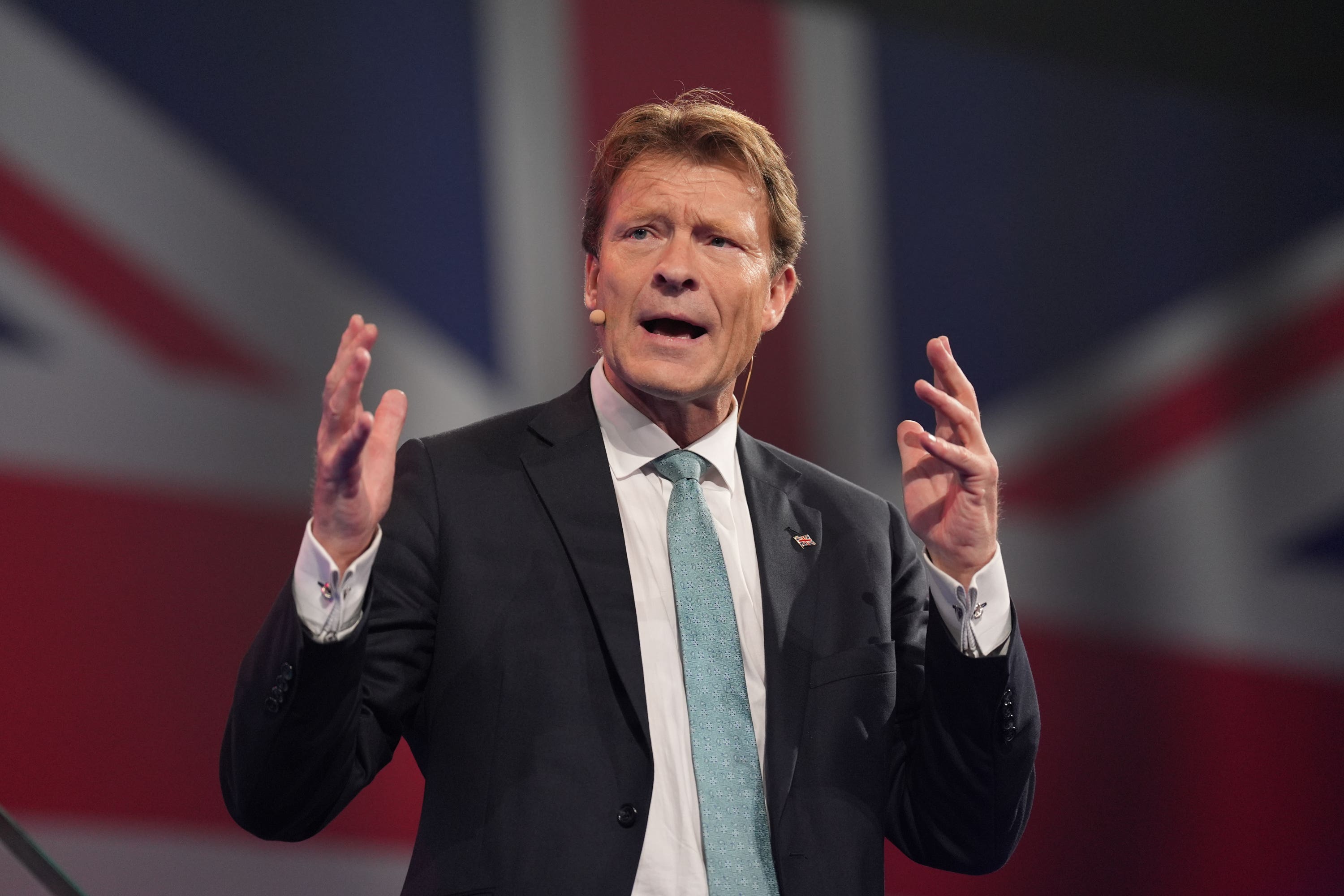Richard Tice brands state of British steel industry a ‘catastrophe’
The Reform UK deputy leader said the UK will be world leading in ‘naive stupidity’ if the Government continues to close blast furnaces.

Your support helps us to tell the story
From reproductive rights to climate change to Big Tech, The Independent is on the ground when the story is developing. Whether it's investigating the financials of Elon Musk's pro-Trump PAC or producing our latest documentary, 'The A Word', which shines a light on the American women fighting for reproductive rights, we know how important it is to parse out the facts from the messaging.
At such a critical moment in US history, we need reporters on the ground. Your donation allows us to keep sending journalists to speak to both sides of the story.
The Independent is trusted by Americans across the entire political spectrum. And unlike many other quality news outlets, we choose not to lock Americans out of our reporting and analysis with paywalls. We believe quality journalism should be available to everyone, paid for by those who can afford it.
Your support makes all the difference.The UK will be world leading in “naive stupidity” if the Government continues to close blast furnaces and put an end to British steelmaking, Reform UK’s Richard Tice has said.
The party’s deputy leader said the current state of the steel industry is a “catastrophe” and accused both the Tories and the Labour Party of “negligence”.
This comes after traditional steel production ceased in Port Talbot in September, with thousands of workers losing their jobs.
The Tata Steel plant is set to enter a transition phase until 2027 when steelmaking will resume through the electric arc furnace, part-funded by a £500 million grant from the UK Government.
After food and water, for modern civilisation, steel is the most important component. Without steel you can’t have the internet, you can’t rely on foreign imports for such a critical part of humanity
Nearly 2,000 jobs will be lost as a result of the transition. The Government has said around 500 jobs are expected to be available during the construction of the electric arc furnace.
Speaking before his Westminster Hall debate on the steel industry, Mr Tice said the UK should not depend on the “whims of overseas manufacturers” and British steel should continue to be produced.
He told the PA news agency: “The state of our steel industry is a catastrophe. In about 12 to 18 months we will have no steelmaking in the UK. We will be the only G20 country not making virgin steel.
“After food and water, for modern civilisation, steel is the most important component. Without steel you can’t have the internet, you can’t rely on foreign imports for such a critical part of humanity,” he added.
Mr Tice went on to say: “People of the establishment talk about us being world-leading, naive stupidity is the only thing we’re going to be world-leading in.”
The Boston and Skegness MP argued that the industry needs “significant protections”, adding: “Steelmaking has halved in just six or seven years, which is a disaster.
“Both main parties have been guilty of negligence in allowing us to get to this stage.”
On the closure of Port Talbot steelworks, Mr Tice said: “The electric arc furnaces will never be built because they are so demanding on electricity, and the grid connections are so hard to get hold of.
“We will find ourselves as the only country not making virgin steel. It’s all the fault of net zero.”
He added that he also expects Scunthorpe steelworks to close within the next six to 12 months.
Asked what he would do in the Government’s position, he said: “I would be looking at building a blast furnace – 72% of our steelmaking capacity around the world is blast furnaces.”
During the debate on Wednesday, Mr Tice is also expected to urge the Government to publish its steel strategy in “a matter of weeks”.
The strategy will look at how it can increase steel capacity in the UK and is set to be published in spring 2025.
A Government spokesman said: “This Government will simply not allow the end of steelmaking in the UK. That’s why we’ve committed to £2.5 billion of investment to rebuild the UK steel industry and support communities now and for generations to come.
“We’re working across government, in partnership with trade unions and businesses, to secure a green steel transition that’s right for the workforce and safeguards the future of the steel industry in Britain.”